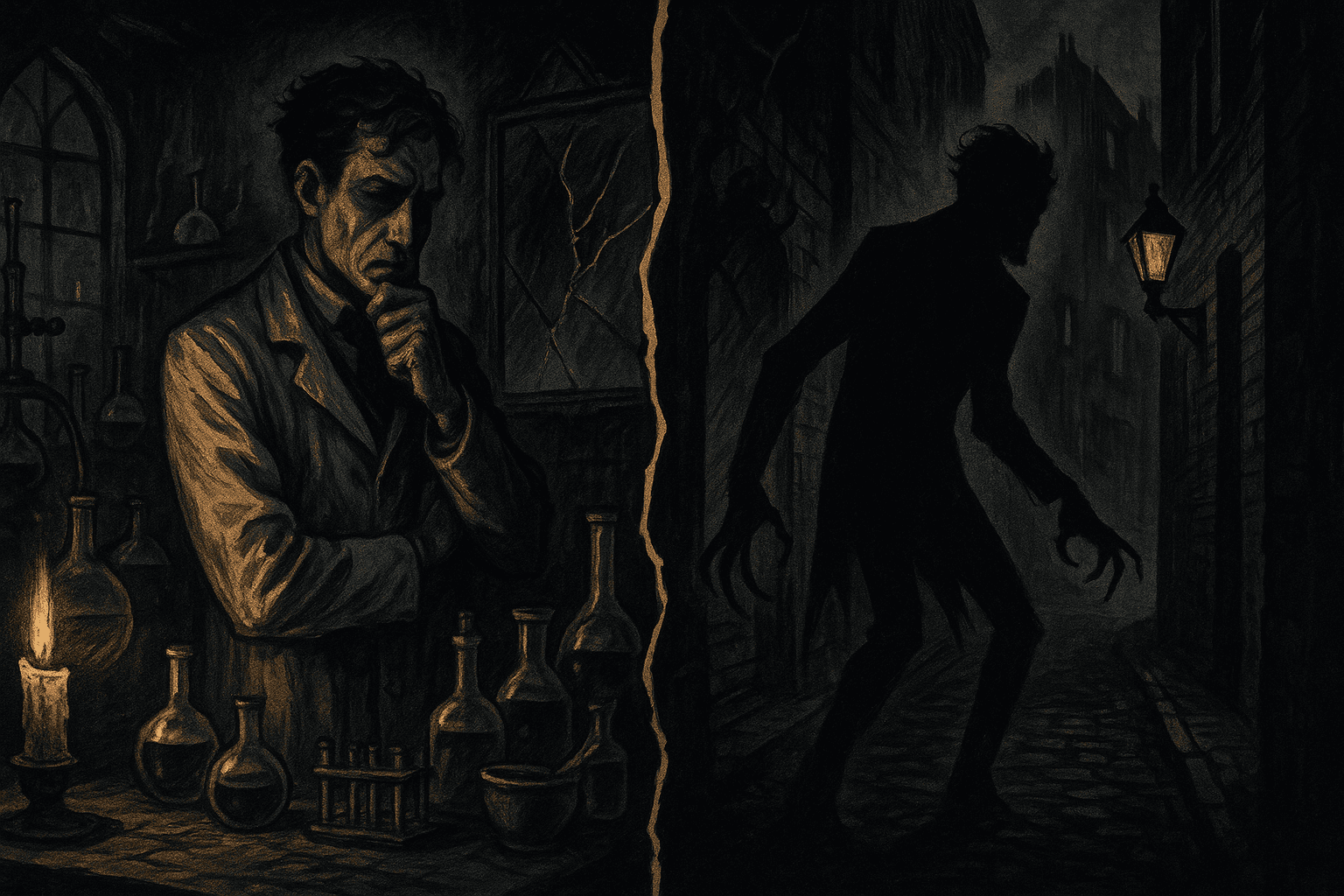The Dark Side of Discovery: Consequences of Scientific Experimentation in Dr. Jekyll and Mr. Hyde

When we think about scientific experimentation, we often envision groundbreaking discoveries and life-saving innovations. However, in the realm of Gothic fiction, particularly in " The Strange Case of Dr. Jekyll and Mr. Hyde ," the consequences of such experimentation take on a darker hue. Here, the thirst for knowledge morphs into a tragic tale of duality, moral ambiguity, and the catastrophic fallout of playing God.
From the moment we meet Mr. Hyde, it’s clear that something sinister is afoot. His violent actions, like trampling a child without remorse, hint at the monstrous potential lurking within humanity, suggesting that the quest for scientific enlightenment can awaken our darkest instincts. This unsettling introduction sets the stage for the deeper exploration of Dr. Jekyll’s experiments, which promise liberation but ultimately lead to chaos.
As Mr. Utterson delves into the mystery surrounding Hyde, he uncovers troubling truths about Dr. Jekyll’s unorthodox scientific pursuits. Jekyll’s confidence in his ability to control Hyde reflects a dangerously naive belief in the power of science, highlighting the ethical dilemmas that arise when one seeks to manipulate human nature. The friendship between Utterson and Jekyll is strained as Utterson grapples with the implications of Jekyll's will, which inexplicably favors the very creature that embodies his worst fears.
The narrative escalates when Hyde commits the brutal murder of Sir Danvers Carew. This pivotal moment starkly illustrates the dire consequences of Jekyll’s reckless experimentation. The link between Jekyll and Hyde becomes undeniable, and the horror of the situation forces Jekyll to confront the monster he has created. His attempts to sever ties with Hyde only deepen the tragedy, as he realizes that his dual existence cannot be escaped.
In subsequent chapters, we witness Jekyll’s descent into despair, marked by his deteriorating mental state and the growing fear that he can no longer contain Hyde. The chilling moment when Utterson and Enfield see Jekyll’s transformation hints at the irreversible consequences of his scientific meddling. The once-respected doctor becomes consumed by his darker side, raising unsettling questions about identity and morality.
Dr. Lanyon’s narrative adds another layer to this tale of woe. Witnessing the shocking transformation of Hyde back into Jekyll shatters Lanyon’s understanding of science and reality, emphasizing the moral implications of Jekyll’s experiments. This moment serves as a key reminder: when the pursuit of knowledge is divorced from ethical considerations, the results can be horrifying.
The climax of the story culminates in Jekyll’s full confession, where he reflects on the profound consequences of his scientific endeavors. Initially, he sought to liberate himself from societal constraints, but as the lines between his identities blur, he faces the painful truth that his quest for knowledge has led to his own destruction. The irreversible merging of Jekyll and Hyde illustrates the ultimate price of scientific ambition, reminding us that every experiment carries the weight of moral responsibility.
In the end, Dr. Jekyll’s tragic fate serves as a cautionary tale, urging us to ponder the fine line between discovery and disaster. When ambition overrides ethics, the consequences can be dire—not just for the experimenter but for society at large. The chilling conclusion leaves us with a haunting question: what are we willing to sacrifice in the name of knowledge? Perhaps, the answer lies in recognizing that some doors, once opened, can never be closed again.
Books: The Strange Case of Dr. Jekyll and Mr. Hyde
Authors: Robert Louis Stevenson
Publishers: Public Domain